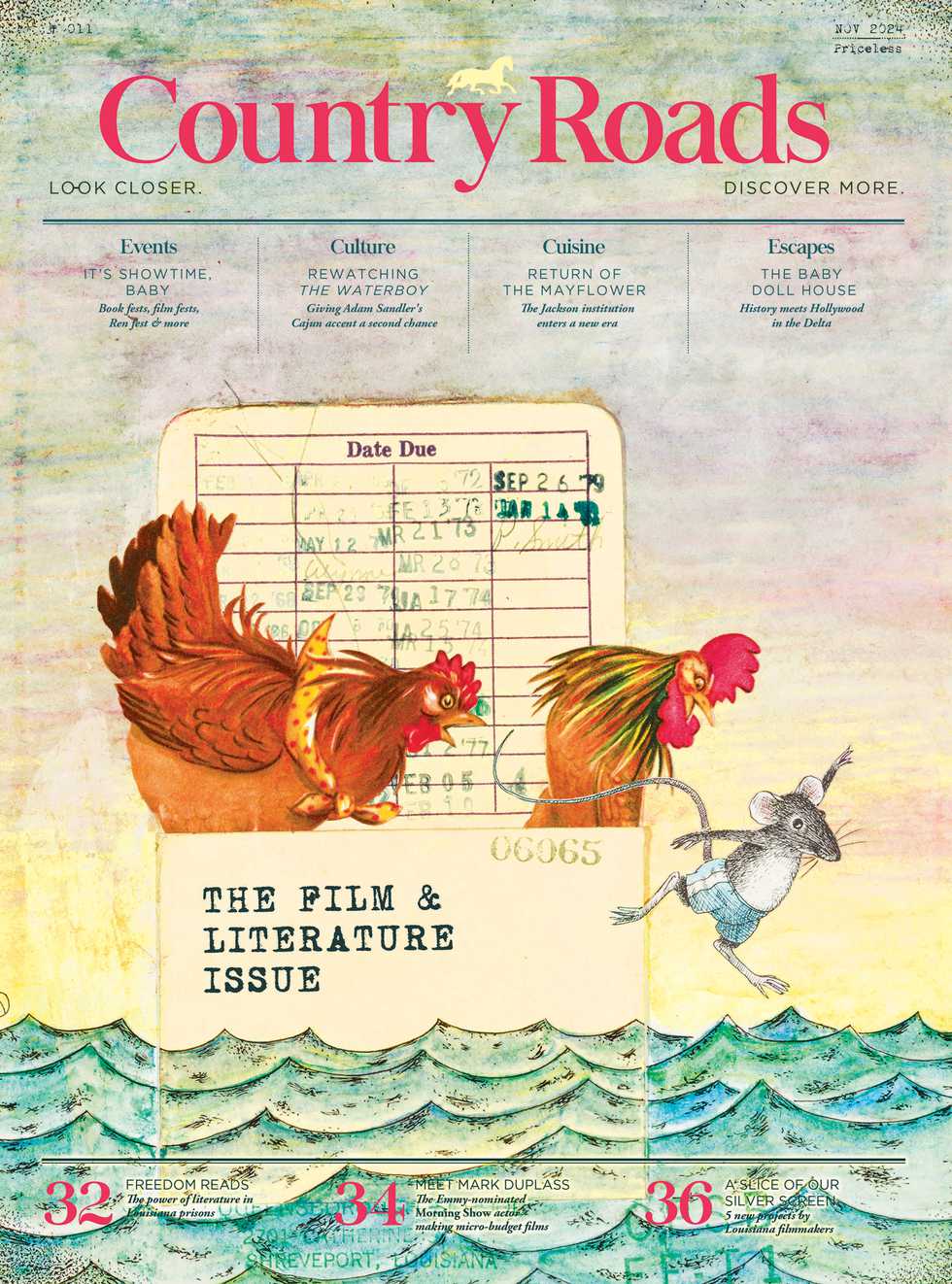All photos by Lucie Monk Carter
I was sitting in a stream of late-afternoon sun beaming across the kitchen of Tanner and Carlee Purdum when Tanner mentioned social norms.
Carlee jolted over the counter toward her husband, arm outstretched. “Social norms!” she echoed—punctuating the comment with a gleeful high-five.
“Vocabulary!” added Tanner in a happy couple’s shorthand.
Carlee’s a sociologist; Tanner a chef. When she was accepted into LSU’s sociology graduate program last year, Tanner began job hunting as they prepared to move from Dallas. A Skype interview later, he was hired by James and Lina Jacobs as the first-ever executive chef at Magpie Cafe.

Magpie, the popular cafe and lunch location in Baton Rouge’s Acadian Village, has gradually outgrown its coffee shop counter and aims to open a full-service second location in downtown Baton Rouge later this spring, with Tanner at the helm. Over four seasonal courses prepared by Tanner—kale and swiss chard with charred cauliflower leaves, sweet potato gratin, purple cauliflower risotto, and apple clafoutis—I spoke with the Purdums about community, cooking language, and the particular, enthusiastic balance they’ve struck in becoming Baton Rougeans.
On coming to Baton Rouge:
T: In a three-month period, we got married, I finished college, and then we moved down here.
C: We realized, “This is it. We’re here. There’s no going back.” Baton Rouge has been such a wonderful place for us, and we care about it. People form attachments to their environments, and that community is what makes a place flourish. You’re more satisfied with your life when you’re connected to the people around you. There are things I read about in books, but with Tanner, I get to see it really happening and be a part of it.
On finding friends through farm-to-table:
T: What drew me to Magpie is that I realized, This place is doing things that are local. That’s what I wanna do. I wanted to get immersed in that culture and in that feel. Like Peru [Sharma, of Indie Plate, Baton Rouge’s farm-fresh delivery service]? That guy, oh man. If I call and say, “Hey, this is what I’m looking for…” he will drive for hours to get it for me. We became good friends with Grant and Allison from Fullness Farms too. I think we’re going to their farm in a week just to hang out. I love what they’re doing. I mean, I’ve got garlic blossoms as my tattoo. It makes me giddy! I want to find those people who are as excited about seeing something coming out of the dirt.
On a simpler style of cooking:
T: Different chefs have their own cooking language. I see a dish and love it, but it’s not how I would do it. When someone tells you a story and then you repeat it, it’s never the same exact words. It’s still a great story, it’s just told in a different way.
C: So much of our culture is about the new, the better, the crazier, the more visually stimulating, the more—but I think in our lifestyle we’ve valued going back to the basics.
T: We’ve taken these steps back, yet we’ve found ourselves ten steps forward without realizing it. For the supper socials [Magpie’s monthly dinner series, limited to sixteen guests per event], when people say it was so good, I’m like “I did some cool work, but I didn’t make that carrot taste so good. It just came to me like that.”
Sometimes I feel like I’m cheating. I’m given these awesome ingredients and I just do them in my simple fashion. I give these amazing displays to people, and I almost feel wrong taking the credit. That’s why I always try to name the chefs on my menu. It’s not just my creation. I’m a catalyst for these awesome fruits and vegetables that I’m putting in front of you.
On embracing change:
T: You plan a menu and it’s out there, then you get a call from the farmer saying “Hey, this crop was destroyed.” But I want to have my people trained to act on the fly. What can we do?
I think the reality is that farmers are human. Crops get messed up. Things go wrong. I don’t want to say it takes a special person to do farm-to-table, but it requires patience and creativity. It requires a team that isn’t afraid to try something risky. Why can’t a dish just be three things?
C: What I’ve seen with people being disappointed in certain dishes is that restaurants try to appeal to the masses. It keeps you from being creative. The truth of the matter is not everyone is going to like the same things. But it’s like when you go to the grocery store and it’s the same vegetables that are so familiar. I think people know when they come in [to eat Tanner’s cooking] that they’re going to try something new.
T: I tell everyone when they say they don’t like an ingredient, “Well, you haven’t had it right yet.”
C: He’s always doing this to me! If I say I don’t like a food—
T: I go buy it.
C: And then he’s going to sneak it into a meal, wait until I say—
T: “This is so good!”
C: And then he’ll say, “Ha, it had kale in it! You do like kale!”

